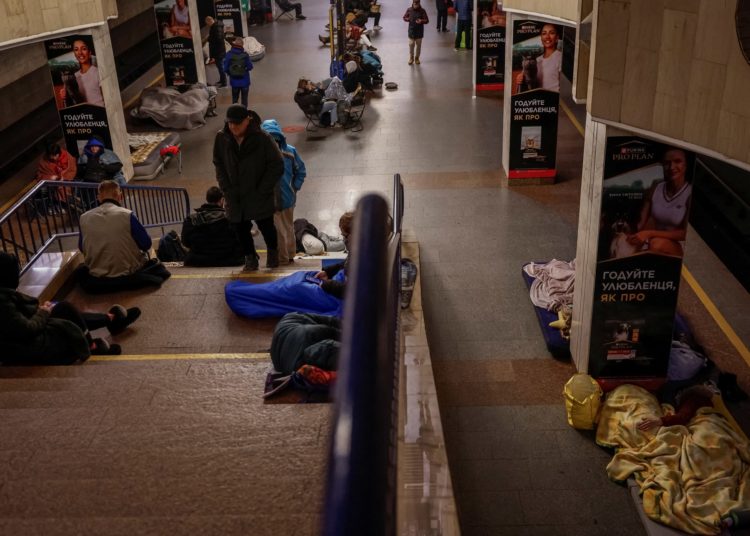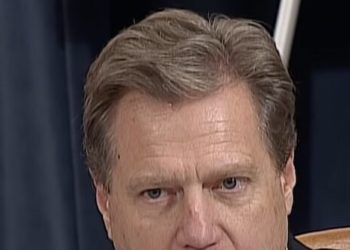Italy was once Europe’s emblem for political instability, with a mounting debt and deficit and few options to fix the mess. Now, it’s France’s turn, and the situation is about to get worse.
On Monday, President Emmanuel Macron’s government is expected to fall for the second time in just nine months after a confidence vote in Parliament.
The French prime minister, François Bayrou, called a vote to shore up support for his plan to mend the country’s finances with 44 billion euros (a little over $51 billion) in spending cuts. If the vote goes against him, Mr. Bayrou will be forced to resign and Mr. Macron will have to name yet another prime minister, who will have to immediately return to the task of fixing France’s budget.
In the meantime, investors have pushed up French borrowing costs to among the highest in the eurozone, reflecting rising risk.
How did France get this point?
The country’s economy, the second largest in Europe after Germany’s, appears strong at first glance. Before President Trump’s tariff war, growth was slow but steady and employment was picking up.
Behind the scenes, outsize government spending and falling tax receipts strained finances. The European Commission, the European Union’s executive branch, reprimanded France last year, and Mr. Macron’s government raced to fix a surging debt and deficit with cuts to the welfare state and tax increases.
But the efforts were sidelined last summer when Mr. Macron unexpectedly dissolved the lower house of Parliament, the National Assembly, in a gamble that was intended to prevent a far-right party, the National Rally led by Marine Le Pen, from gaining more power.
That maneuver backfired, leading to a deeply divided Parliament and a new prime minister, Michel Barnier, whose government was ousted after only three months in power. Mr. Bayrou was appointed shortly afterward and made attacking the deficit the central plan of his government.
Recently, Mr. Bayrou warned that the country faced a financial crisis if it did not act decisively. He proposed a new array of drastic spending cuts and tax increases, as well as scrapping two French holidays, which set off nationwide fury.
Spending soars …
Mr. Bayrou has been trying to shrink government spending, long the highest in Europe, for a reason: Much of it goes toward financing a generous social welfare system. Last year, an eye-popping 57 percent of the nation’s economic output was channeled into financing hospitals, medicines, education, family reproduction, culture and defense, not to mention generous pension and unemployment benefits.
France’s budget deficit reached 168.6 billion euros, or 5.8 percent of its economic output in 2024, the largest since World War II and well above the 3 percent limit required in the eurozone. The government collected €1.5 trillion in revenue but spent €1.67 trillion on national and local government operations and the social safety net.
Part of the overspending comes from the unexpected twin shocks of the Covid pandemic and a European energy crisis unleashed by Russia’s invasion of Ukraine. Mr. Macron adopted a “whatever it takes” approach to shield the economy, dishing out more than €240 billion in exceptional spending since 2020, according to Cour des Comptes, France’s auditor.
… And taxes are cut.
Just as problematic are the tax cuts that Mr. Macron has given to businesses and to the rich. Tax receipts have fallen to 51 percent of gross domestic product from 54 percent since Mr. Macron took office in 2017 with promises to boost France’s competitiveness and lure foreign investment. He made generous employment tax breaks permanent and curbed a national wealth tax, earning praise from investors — and the nickname “president of the rich” from his detractors.
To get the rich to invest in the economy, Mr. Macron replaced a tax on the very wealthy with a tax on real estate assets valued at more than €1.3 million. But critics say few of those investments materialized. In the meantime, more taxes were shifted to consumption and a broader income base, including salaries, pensions and capital gains.
Those policies widened economic inequality, said Eric Heyer, director of the French Economic Observatory in Paris. Combined, the tax cuts have resulted in an estimated €50 billion loss to French coffers annually, according to Cour des Comptes.
Increased borrowing leads to rising debt.
The result has been more borrowing and higher debt. Today, France has €3.35 trillion of debt, which is expected to reach 116 percent of economic output this year, one of the worst in the eurozone. Interest payments have jumped to €66 billion from €26 billion in 2020, larger than the budget for education or the military.
Wary investors have driven the country’s borrowing costs above those of crisis-scarred Greece and well above those for Germany, a eurozone stalwart. At 3.45 percent, the rate is still less than that of Britain or the United States, but France’s economy is not as robust. If nothing is done, interest payments will become the biggest expense in the French budget in four years, Mr. Bayrou has warned.
Is France’s economy really that bad?
France is a too-big-to-fail economy and is not about to go bankrupt. It is hardly on a par with Greece, which nearly broke up the eurozone more than a decade ago after failing to rein in its finances. And France can still borrow on financial markets, unlike Greece, which was shut out.
Nor is the country in need of a bailout from the International Monetary Fund, a suggestion that France’s finance minister recently made, before backpedaling.
That said, “things are bad,” said Bruno Cavalier, chief economist at Oddo bank in Paris. “We have a highly fragmented National Assembly, a government that is falling again and a collective denial of what is at stake,” he said.
Global ratings agencies could downgrade France’s debt. That could pressure French banks, which hold the debt in large quantities. “This all represents new risk,” Mr. Cavalier said.
In a silver lining, without a new budget to tame France’s finances, a new government would freeze spending for 2026 at current levels, creating fiscal constraints even if there is political gridlock.
What’s next for France?
France will grapple with political uncertainty as Mr. Macron chooses a new prime minister and a new cabinet.
Expecting to gain more seats in the lower house, the National Rally party has been calling for new parliamentary elections. The far-left France Unbowed party and its longtime leader, Jean-Luc Mélenchon, are demanding early presidential elections. So far, however, Mr. Macron has ruled out both.
In the meantime, France will face a series of demonstrations by protesters angry at the prospect of cuts to the social welfare system. A nebulous movement on social media is calling to “shut down France” on Wednesday, while France’s main labor unions are planning nationwide demonstrations and transportation closings on Sept. 18.
Liz Alderman is the chief European business correspondent, writing about economic, social and policy developments around Europe.
The post Why France’s Financial Woes Are Pushing Its Government to the Brink appeared first on New York Times.




